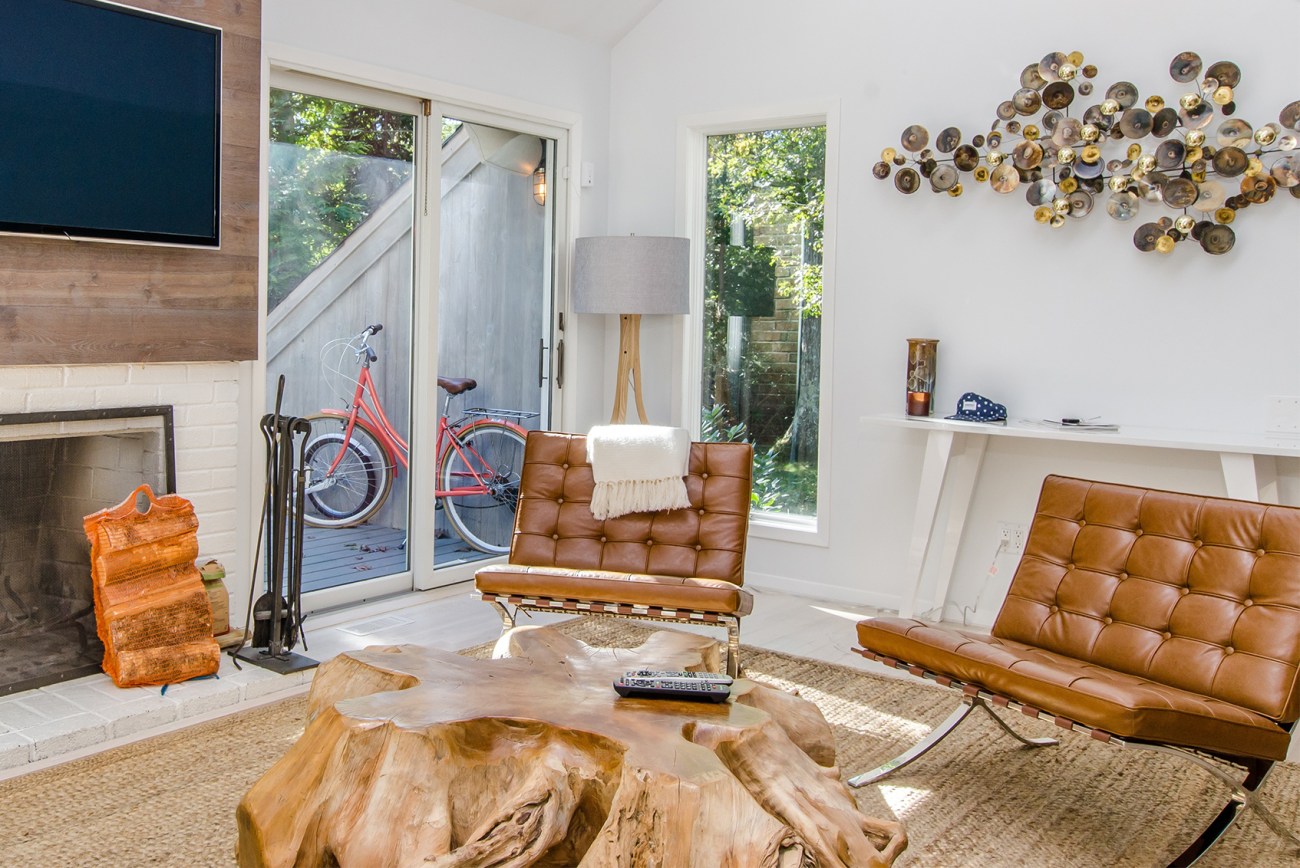You’d never go to a job interview without brushing your hair or polishing your shoes, so why not set your home up for success in the same way? Selling a home benefits from attention to detail and proper staging that can impact the way potential buyers experience your property. Whether you’re hiring a professional or want to stage a home yourself, the right choices can help you to sell your home faster and for more money.
What does it mean to stage a home?
Staging your home allows you to maximize appeal by organizing it to showcase its best assets and help potential buyers imagine themselves living there. If you’ve ever watched a real estate video or seen a celebrity home tour, you’ve seen a staged home.
Why is home staging important?
It can be difficult for us to step outside of our own tastes and personal preferences, and an objective perspective can help make your home appealing to more buyers. A great stager mixes design knowledge with insight into human nature and psychology. Home stagers understand how different demographics of people view a potential home, and what they’re looking for in order to make it their own. Certain colours, fabrics, or textures might make most people feel safe or welcome in a way that others don’t. Details that you don’t usually notice, like clutter or an unkempt lawn, could signal a lack of care to a potential buyer. A simple act like putting a crib in what is now the office or fitness room lets potential new families imagine themselves in the space. The idea isn’t to make your home look most appealing to you but rather to step outside of what your home means to you and imagine how someone else might adopt it in a totally different way.
First impressions matter
The way a home is presented can say a lot about how it’s maintained and who lives there. We all know you can’t judge a book by its cover, but it’s easy to be influenced by outside packaging. Whoever buys your home is identifying with it personally, and may form a subconscious bias from the first moment they see a photo of it or drive past the front door. Once someone has formed an opinion, it’s difficult to undo their perception. Potential buyers make assumptions about houses before they even see the inside. You only get one chance to make a first impression, so boost curb appeal with a well-manicured lawn, a clean front porch, and these other useful exterior grooming tips:
- Wash the front windows and address chipping paint.
- Mow the front lawn, weed the garden, and trim any hedges or dangling branches.
- Make sure the walk is salted and shovelled for easy access if you’re selling in the winter.
- Get a new doormat to welcome potential buyers and clean off muddy or snowy boots.
- Make sure your house number is clear and easy to read.
- Reinforce old wobbly steps or bannisters.
- Repaint and repair the front steps and any noticeable flaws on the front of the house.
- Consider leaving one or two lights on in the evening in case potential buyers drive by at night.
- Don’t forget to look next door; your neighbour’s overgrown hedges or a porch next door overflowing with garbage can affect how buyers see your property.
Clean from top to bottom
Showcasing a clean home that looks and smells great is one of the easiest and most important steps when it comes to staging your home. Even if you’re someone who regularly sweeps and cleans, it’s time to take it to the next level.
Cleaning tips for staging your home:
- Sweep and mop floors, vacuum carpets and clean windows. Get tired carpets professionally deep-cleaned so they look fluffy and fresh.
- Deep clean inside cupboards, under the stairs, backsplashes and inside closets. Don’t assume that hidden places will remain unseen.
- Follow your nose. Pet smells, mildew and lingering fragrances can be a turn-off for potential buyers.
- Ventilate the space well and get rid of smells at the source instead of masking them with air fresheners.
- Polish and clean wood surfaces or floors so they shine.
- Keep the garbage empty, and make sure the fridge and freezer are clean.
- Put out fresh soap and make sure any items you’re showcasing are clean as well.
Declutter
Getting rid of extra clutter makes your home look spacious and appealing; rooms feel bigger, closets look roomier and that empty space will allow the viewers to imagine themselves living in the home. Remember that decluttering benefits you, too — the less you keep, the less you’ll have to move to your new home.
Decluttering tips:
- Consider offsite storage units or use a friend’s garage for anything taking up extra space.
- Involve your kids in the process. Encourage them to donate or give away toys they aren’t using.
- Keep a healthy balance. Your space should feel livable, not so sparse that it’s hard to imagine anyone living in the house. Keep a few strategic items out like a vase of fresh flowers or an unopened bottle of wine.
- Clean out cluttered pantries or cupboards and leave a few upscale products or canned preserves for a homey feel.
- Make sure any items visible to guests are clean, fresh, and look new. Hide your worn-in sneakers, but leave your designer heels on display to show off a closet’s potential.
- Get rid of personal toiletries in the bathroom and leave a few simple, high-end products on shelves or in medicine cabinets.
Set the scene
Potential buyers want to imagine themselves in their new home. That might mean family dinners, evenings curled up on the couch, entertaining guests or working productively in a home office. Since you don’t know what the new buyers will be imagining, set the scene for warm, comfortable living that appeals to most people.
Decor tips for staging a home:
- Consider swapping out any decor or furniture that’s quirky, vintage or avant-garde.
- Leave a bowl of fruit or fresh-baked bread on the kitchen table, drape a cozy blanket on the couch or light a nice candle in the bathroom.
- Create a colour palette for your living room and coordinate throw pillows, curtains and other subtle pops of colour to tie the room together.
- Rethink corners, nooks, or that little space under the stairs. Add a pillow or cozy chair to make unused space a reading nook, or place a flourishing plant there to add appeal.
- Make sure any viewable dishes or utensils in the kitchen are matching or new. Bring in a few plants to add a touch of green to each room.
- Choose agreeable art instead of personal family photos to depersonalize spaces.
- Set out wine glasses or place settings on the dining room table to set the scene.
- Make all spaces gender-neutral and avoid bright pinks, florals, or overly masculine fabrics. Light colours and neutrals are a great way for people to link their own vision to a space.
- Make sure bathrooms have clean new bath mats, fresh fluffy towels and nice soaps.
- Lighten up any dark walls or paint colours and opt for warm whites or neutrals instead.
- Uniformity is satisfying, so opt for matching hangers in the closet and display matching sets of dishes on open shelving
- Avoid entertainment consoles in bedrooms so that they feel peaceful.
- Make your staging seasonal, with pine or cinnamon room scents in winter and fall, or fresh citrus in summer.
Know your potential buyers
You want your home to appeal to as many people as possible, but the price point or nature of your home may be most appealing to a specific demographic. A condo on the 41st floor at a higher price point should be staged differently than a farmhouse in a quiet rural town. A tiny studio in an urban core likely won’t be housing a whole family and is more likely to be appealing to a single person or a business professional. Likewise, a craftsman cottage by a lake would be suited for more rustic or woodsy staging than a traditional family home. When you stage a home, the lifestyle associated with your property should match the staging.
There are some basics that are consistent with home staging; like great lighting, uncluttered surfaces, and a fresh smell. But the nuances of what a buyer in each market might want are important in getting the most out of your sale. A good agent or home stager will help you understand who might be buying your home and stage it with them in mind. If you’re doing the staging yourself, take a look at homes that recently sold in your area to see how they were staged for inspiration.0
Think outside the box
Perhaps you’ve been using the extra room as a spare place for your clutter or kid’s toys, but remember that your buyers might have different intentions. When you stage a home, consider staging an extra room as a home office or a guest suite to suggest possibilities.
How much does professional home staging cost?
Hiring a professional to stage a home isn’t cheap. The cost of hiring an interior staging expert in Canada can range from $1,400-$5,000 depending on the size of your home. But research shows that properly staging a home can drastically decrease the amount of time a house spends on the market and increase a home’s value.
Affordable tips to stage a home
If you’re on a tight budget, there are alternatives to hiring a professional stager, including other professionals that can help improve the look and feel of your home at a lower price.
- Can’t afford new furniture? Fresh slipcovers in light fabrics offer a cheap makeover for tired-looking furniture.
- Save by hiring a professional landscaper for just the outside of the home and do the interior yourself. Outdoor maintenance can help make a good first impression.
- Make simple repairs or paint to repair holes, mend fences, replace fireplace screens or window screens and refresh walls with a new coat of paint. Some of these can be done without paying a professional and have a transforming effect at a low price point.
- Cleaning professionals offer deep cleaning services, and you may also want to professionally steam clean carpets instead of just vacuuming if they’ve had heavy wear.
- If you can’t afford a professional stager, have a friend with differing tastes come in and tell you how they’d perceive your home as a buyer. Maybe that hockey poster you love sits differently to someone who doesn’t like sports, or the front room has a funny smell you haven’t noticed. Getting a different perspective may help you consider potential buyers that don’t share your perspective.
Set the stage with Houseful
Houseful provides personalized guidance for your real estate journey. Work with local real estate agents and gain access to financial insights from Royal Bank of Canada mortgage advisors.
Houseful can connect you with a local expert here.




